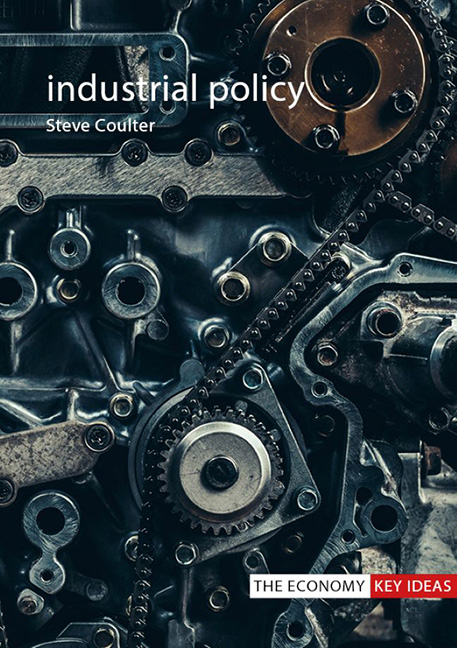Book contents
- Frontmatter
- Contents
- Preface and acknowledgements
- 1 Introduction: industry, economy andindustrial policy
- 2 States, markets and growth: the economics of industrial policy
- 3 Implementing industrial policy: the experiences of five countries
- 4 New horizons for industrial policy
- 5 Conclusion
- Further reading
- References
- Index
4 - New horizons for industrial policy
Published online by Cambridge University Press: 20 January 2024
- Frontmatter
- Contents
- Preface and acknowledgements
- 1 Introduction: industry, economy andindustrial policy
- 2 States, markets and growth: the economics of industrial policy
- 3 Implementing industrial policy: the experiences of five countries
- 4 New horizons for industrial policy
- 5 Conclusion
- Further reading
- References
- Index
Summary
The previous chapter compared how different countries have used industrial strategies to shape their economies, emphasizing the diversity of approaches to tackling common problems. This chapter focuses on some emerging future challenges which comprehensive and forward-thinking strategies can be deployed to tackle.
The first section deals with the task of getting to net zero emissions of greenhouse gases (GHGs). A number of countries have committed to ambitious carbon reduction programmes. Greening and transforming domestic industries plays an important part in all of these. Industrial policies are therefore being recast as combined developmental and emissions reduction programmes. The key challenge here is not necessarily technical. Many of the technologies needed for decarbonization are already available, although there is still a key role for innovation to make them cheaper and more scalable.
A much more difficult task for policymakers is achieving the momentum to reorganize entire economies built since their foundation around consumption of fossil fuels. There are two key problems here. First is the asset-specificity of many industries, which makes reconfiguring them along more sustainable lines an expensive and difficult project. This is due to the significant sunk costs in carbon-intensive industries, as well as potential resistance from workers who will need to be reskilled. The second problem, stemming from the first, is a time-inconsistency issue. Decarbonization entails large upfront costs for benefits that mainly lie in the future. Devising policies to focus minds on this can be difficult, given other pressing demands on funding and government attention. With this in mind, what do “green” industrial policies look like?
The second section covers globalization and, latterly, deglobalization. The decomposition of production into global value chains (GVCs) has meant lower prices for consumers, but at the price of job losses and greater insecurity of supply. Domestic discontent is combining with trade wars and hostility between China and the US to lead to their partial unravelling. This will affect both rich and poor countries, as each lie at opposite ends of GVCs. What should their governments do in response?
The third section covers the role of industrial strategies in dealing with the impact of technology and the “fourth industrial revolution”.
- Type
- Chapter
- Information
- Industrial Policy , pp. 93 - 130Publisher: Agenda PublishingPrint publication year: 2023



